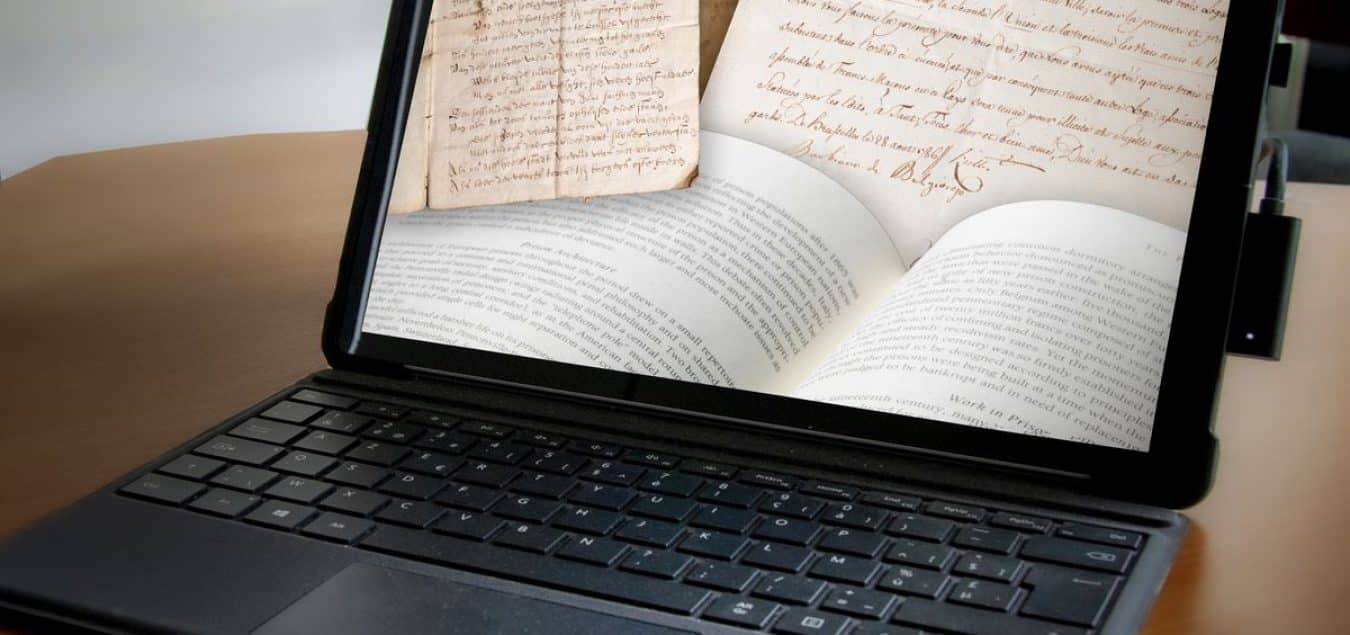
- This event has passed.

Digital Heritage Seminar: Humanities Approaches to Semantic Change
Online eventDigital Heritage Seminar: Lexical Semantic Change for the Humanities
Language provides a window into societies and cultures of the past and the present. In the past decade, the development of large historical/diachronic text corpora and the popularisation of computational methods in the humanities have allowed scholars to leverage language patterns to answer a large array of research questions in disciplines as varied as linguistics, history, archaeology, literature and media studies.
Lexical semantic change, a phenomenon describing the evolution of the meanings of lexical units, has long preoccupied historical linguists. The possibility to study this phenomenon with computational methods has far reaching implications in several disciplines since diachronic semantic change can be used to identify conceptual shifts in questions related to many aspects of society such as culture, religion, politics, economics and morality. The recent convergence of Natural Language Processing and Computational Linguistics with a range of humanities disciplines has led questions related to lexical semantic change to gain momentum.
In this three-part seminar series, we will hear from three timely projects which are pushing the boundaries of Digital Humanities by creating synergies between disciplines to develop cutting-edge methods to investigate lexical semantic change at a large scale.
The series is co-organised by CAMille (ULB-KBR), the Data Science Lab (VUB-KBR), the Digital Research Lab (UGent – KBR), and LabEL (UCLouvain-KBR).
Programme
Florentina Armaselu (University of Luxembourg): “Bridging NLP and LLOD: Humanities Approaches to Semantic Change”
Download slides
Natural language processing (NLP) for detecting lexical semantic change and linguistic linked open data (LLOD) are two areas of research that have shown promising results in the latest years. However, their potential of being considered together for analysing and representing semantic change from a humanistic perspective needs further study and development.
The talk will present an overview of theoretical aspects, NLP techniques and LLOD formalisms intended to this purpose, and will focus on a project developed as a humanities use case within the COST Action “Nexus Linguarum – European network for Web-centred linguistic data science.” The discussion will include preliminary thoughts on the conception of a system that combines dictionary information with corpus evidence, and provides multilingual diachronic ontologies for humanities research.
Practical information
Registration is free but mandatory. The morning of the event you will be sent the link to the meeting and the etiquette to follow.
Duration: 1,5 hours
Should you have any further questions please email vfnoryyr.tevobzbag@xoe.or or oerpug.qrfrher@xoe.or.
Register now
About the speaker
Florentina Armaselu is a research scientist at the Luxembourg Centre for Contemporary and Digital History (C2DH) of the University of Luxembourg. She is currently involved in research and teaching projects in the fields of text analysis and interpretation, text encoding, human-computer interaction, and Semantic Web.


